Iranian Sunni Leader Criticizes Regime’s Crisis Management
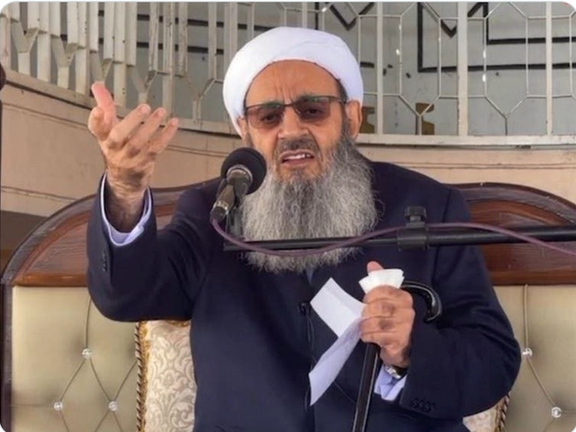
Renowned Iranian Sunni leader Mowlavi Abdolhamid has strongly rebuked the government's handling of a series of crises gripping the nation.

Renowned Iranian Sunni leader Mowlavi Abdolhamid has strongly rebuked the government's handling of a series of crises gripping the nation.
In a fervent address delivered during his Friday sermon in Zahedan, Abdolhamid condemned the regime's failure to address pressing issues such as medicine shortages, dust storms, water problems, and forest fires.
His remarks highlighted the urgent need for efficient water management, and in particular, the potential repercussions of Russia's closure of the Volga River entrance upon the fragile ecosystem of the Caspian Sea.
The outspoken leader referenced the diminishing water levels in the Caspian Sea, echoing recent statements by an Iranian environmental official who attributed part of the crisis to the closure of key entry points, particularly the Volga River.
The head of the Iranian Department of Environment, Ali Salajegheh, also commented on the adverse environmental effects of these closures on the Caspian Sea.
Abdolhamid also drew attention to the responsibility of the government towards these crises and decried what he saw as a lack of effective leadership. His criticism extended to the regime's handling of public demands, which he condemned as indicative of a "weakness of the system". Furthermore, he called for a holistic approach towards solutions and cautioned against the suppression of journalists and politicians, as well as capital punishment.
These pointed remarks from the Sunni leader come at a time of heightened tensions in Zahedan, marked by an increased military presence following a violent incident in September 2022, during which regime agents killed scores of innocent protesters.
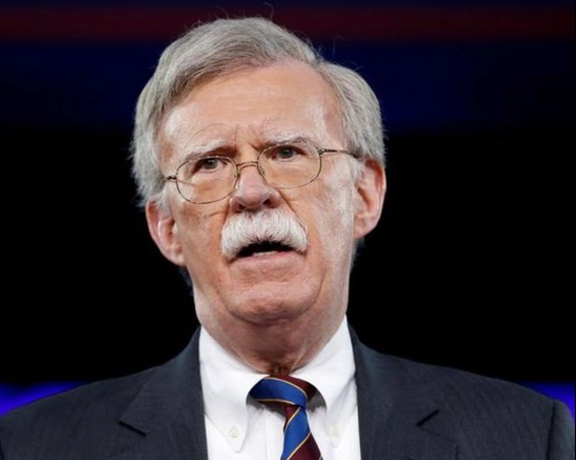
Former US national security adviser John Bolton said that the death of Iranian Supreme Leader Ali Khamenei could expose vulnerability and offer an opportunity for regime change in Iran.
Speaking at a Jerusalem Center for Public Affairs (JCPA) webinar titled "Supporting Iran’s Quest for Democracy and the Urgency of Europe Proscribing Iran’s Islamic Revolutionary Guards Corps" on Thursday, Bolton highlighted the unique window of opportunity that Khamenei's death could present for a democratic transition in the nation.
Bolton emphasized the delicate state of affairs in Iran due to the advanced age and recurrent health issues of Ali Khamenei, currently 84 years old. He noted that the absence of a clear succession plan within the Islamic Republic further exacerbates the challenges of maintaining stability during the transition of power. Bolton's analysis suggests that this critical juncture could be leveraged to weaken the influence of the Islamic Revolutionary Guard Corps (IRGC), thereby fostering a more conducive environment for democratic change.
"Pressuring the IRGC in the lead-up to and during this transition phase could expose its vulnerabilities," Bolton stated. However, he cautioned against complacency, warning that failing to address the IRGC's influence could empower the organization to exert even greater control during this transitional period.
Israeli Intelligence Minister Gila Gamliel, another prominent voice at the webinar, stressed the moral imperative of categorizing the IRGC as a terrorist organization. Gamliel urged the EU and UK to proscribe the IRGC as a means to counteract its role in terrorism and hostage-taking. She underscored that swift action is pivotal in preparing the path for a democratic Iran, allowing its people to experience freedom and self-determination.
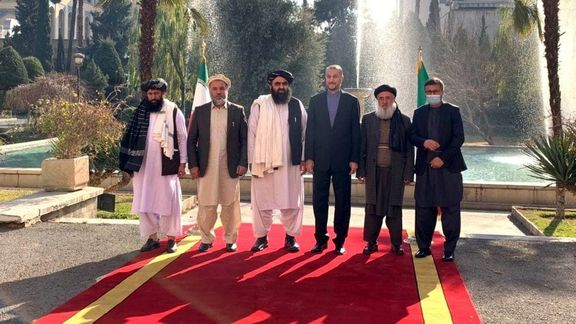
Fars News Agency strongly objected to a tweet by Iran’s foreign minister criticizing the Taliban, alleging that it could have dire consequences for bilateral ties.
In an unattributed commentary entitled “Critique To Foreign Minister’s Recent Remarks” , the Revolutionary Guards (IRGC) linked news agency said Wednesday that Hossein Amir-Abdollahian’s tweet could provoke “unfortunate and irreparable events that may cause challenges to the old friendship between the peoples of Iran and Afghanistan.”
In his tweet on August 8, the Iranian foreign minister had accused the Taliban of committing a murderous act in August 1998 by attacking the Iranian consulate in Mazar-e Sharif during which they killed eight diplomats and a journalist. In fact, Iran’s Journalists Day on August 8 was designated to honor that journalist.
“It is very surprising that despite several meetings with Taliban officials and hosting them, the minister of foreign affairs is unaware of the sensitivities of these matters and the costs that such statements may impose on the government and people of Iran,” Fars wrote and claimed that a breakaway Taliban faction controlled by Pakistani intelligence had been responsible for the Mazar-e Sharif attack.
In another tweet seven hours later, apparently after he was chastised behind the scenes by the military, Amir-Abdollahian tried to somehow appease his critics, but this appears not to have satisfied the IRGC which the Taliban a potential ally against the United States.
In his second tweet the Iranian foreign minister claimed that he had been told by the acting Minister of Foreign Affairs of the Islamic Emirate of Afghanistan, Amir Khan Muttaqi, at their first meeting, that the Taliban condemned the 1998 attack on the Iranian consulate, when asked to clarify the Taliban’s position regarding the matter.
"There is no relationship between the Taliban of today and them. We condemn that inhuman act," Muttaqi said according to Amir-Abdollahian.
Fars also claimed on Thursday that according to sources close to the Taliban negotiating team in Doha, the US Special Representative Thomas West has repeatedly demanded that the Taliban act as a destabilizing force against the Islamic Republic of Iran in return for the release of part of Afghanistan’s blocked assets. Allegedly, the Taliban turned down the demand.
A London-based Afghan political activist told Iran International that the Islamic Republic of Iran has now realized its calculations were wrong and the Taliban would gradually increase their capabilities to act against Tehran, no matter how much the Islamic Republic compromises with them.
It had been obvious from the beginning that the religious ideological difference would not allow a stable relationship between the two and “the honeymoon period” would end sooner or later, he stressed.
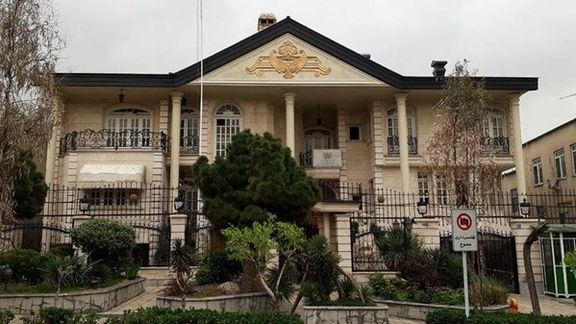
Tehran was the third country after Pakistan and Russia that handed over Afghanistan’s embassy to the Taliban following the fall of President Ashraf Ghani in 2021 and has more or less maintained good relations with the Taliban despite several border skirmishes.
Tensions have been simmering between the Islamic Republic and the Taliban in the past few months over Iran’s share of the waters of Hirmand (Helmand in Afghanistan) which the Taliban are withholding by building dams.
In June Amir-Abdollahian said Tehran does not recognize the Taliban and called for the formation of an inclusive government in Afghanistan. He referred to the water dispute, stressing that any dispute had to be resolved through legal channels as stated in the 1973 water treaty between the two countries. Iran's foreign ministry also strongly refuted Taliban’s claim over lack of enough water due to draught to release Iran's share of the river’s waters.
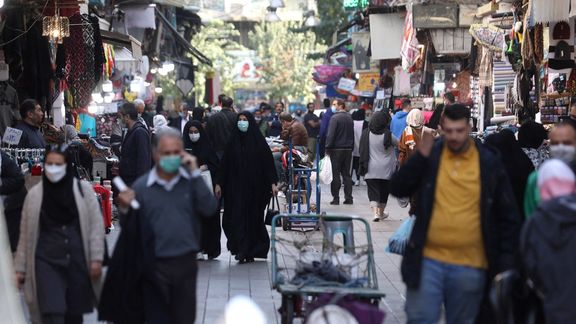
A former head of Iran's Planning and Budget Organization says economic crisis will inevitably lead to the collapse of the regime, as others also voice pessimism.
A prominent ‘reformist’ politician also argues that the current popular distrust in the government leads the authorities to use a security approach against the people.
At the same time, a former Deputy Intelligence Minister and Government Spokesman says despite the nationwide uprising that started in September 2022, there is no prospect for change and reform in the country.
Former budget chief Massoud Roghani Zanjani speaking in a Club House chat session that years of inflation and poverty have brought the popular dissatisfaction to a peak and laid the ground for protests in Iran.
Zanjani said that the current crisis is the outcome of clerics' intervention in politics and the conflict between elected and non-elected bodies in the government. He added that the non-elected bodies are where the clerics' power centers are.
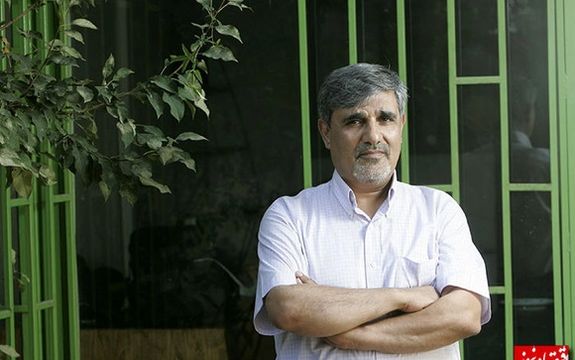
He further added that "When absolute power was given to the Supreme Leader in the 1987 revision of the Iranian Constitution, it was in fact similar to crossing out all other articles of the Constitution." He pointed out that since then, Ali Khamenei has undermined the Constitution by actions such as giving executive powers to the heads of the three branches of the government.
Zanjani said one of the reasons for the country's economic crisis is that Iran has two treasuries, one for the government, and another for Khamenei's office. He further charged that privileges given to the clerics has created an apartheid regime in their favor.
Meanwhile, prominent reformist figure Feyzollah Arabsorkhi said in an interview with Rouydad24 website that people's distrust of the government, has encouraged officials to use security measures as a tool against the people.
He added that what is going on in the parliament and the government is diagonally different from what people expect. Arabsorkhi said, "Just look at the government's views about the Internet and social media. It reflects the views of the hard core of the government about freedom of speech.” Under these circumstances, you cannot expect the people to trust the government when it tries all the time to restrict people's access to the Internet.
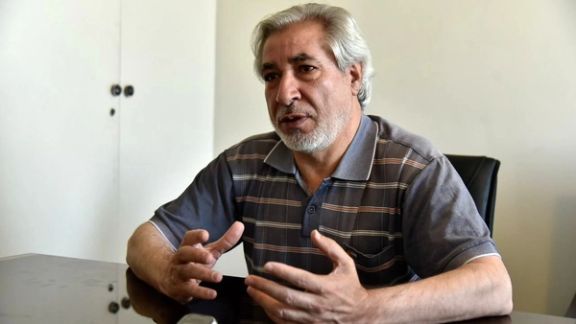
"People's distrust in the government and its efficiency are currently the biggest problems the authorities are facing," Arabsorkhi said, adding that "People do not believe what rulers say, and if the government wishes to correct this situation it should respond positively to popular demands and expectations.
He added that the hijab law that is currently being discussed secretly at the parliament without paying attention to the people's views and expectations is one of the examples why Iranians have lost trust in the government. The state television which could have acted as mediator between the people and the government acts so unilaterally that there is no trace of the people's demands in its programming.
Meanwhile, former government spokesman Ali Rabiei wrote in Etemad Online website that there is still no prospect for reforms and correcting mistakes made by the government despite several months of nationwide protests.
"On the contrary, in some cultural issues we see that the government is putting a step back," Rabiei said, presumably referring to compulsory hijab.
Rabiei insisted that failure to bring about a clear prospect for reforms in foreign and economic policies, and improve governance will adversely affect turnout in the upcoming parliamentary elections.
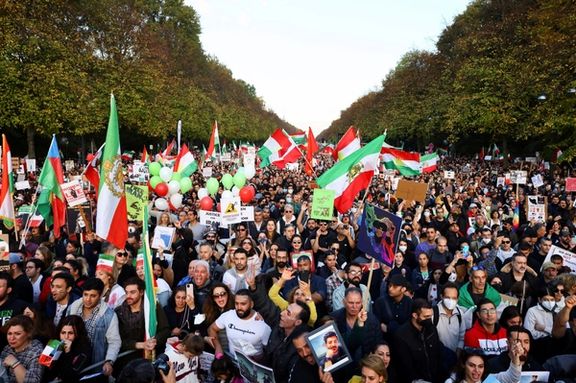
Germany issued a warning to Iranian activists critical of the Iranian leadership, cautioning them about the potential threat of cyber espionage.
Germany's Federal Office for the Protection of the Constitution (BfV) specifically highlighted the activities of the Charming Kitten online espionage group, which employs sophisticated tactics to gain the trust of its targets.
According to the BfV, Charming Kitten employs a multi-step process that begins with building trust through personal contact, eventually leading the victim to unwittingly expose personal data, including online contacts within Iran. The group employs spear-phishing tactics, using counterfeit messages that appear authentic to acquire sensitive information. The victims are then lured into online video chats where they are prompted to enter login details, providing the hackers with potential access to their online accounts.
The cyberattacks conducted by Charming Kitten have primarily targeted dissident organizations and professionals, including legal practitioners, journalists, and human rights activists both within Iran and abroad.
Past instances have revealed the group's involvement in phishing attacks against foreign embassy staff, experts, and human rights advocates. The group's activities are reported to have support from the government of the Islamic Republic.
Notably, Charming Kitten has previously targeted US officials and officials responsible for implementing sanctions against Iran, as well as infiltrating the personal emails of officials within the US Treasury Department. Human Rights Watch has also pointed to the group's involvement in targeting activists, journalists, diplomats, and politicians in the Middle East. The BfV's advisory underscores the critical need for increased cybersecurity awareness and vigilance among dissident activists, journalists, and professionals dealing with sensitive information and international matters.
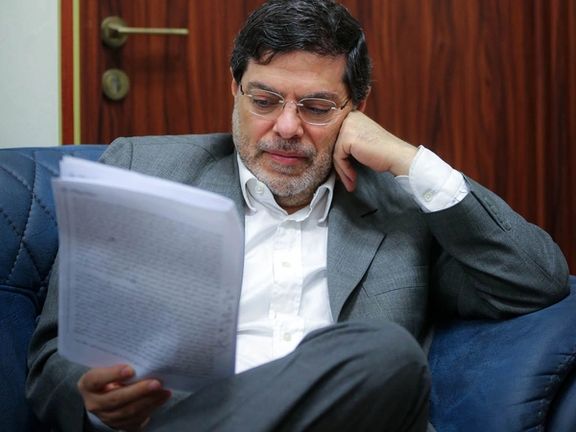
Mohammad Marandi, a regime insider in Iran, says that Tehran will have full access to its funds when they are released from South Korea following a hostage deal.
It was confirmed on Thursday that five American hostages in Iran were released from prison and put under house arrest, pending the release of $6 billion of Iranian funds held in South Korea due to US sanctions.
Marandi, who was part of Iran’s nuclear negotiating team in Vienna in 2021-2022 tweeted that “Iran will have full and direct access to its released assets, there will be no Qatari companies involved, Iranian banks will have full control, and they can purchase goods and services without any limitation or restriction.”
United States officials have insisted that any frozen funds released from Iraq or South Korea can only be disbursed by US supervision for humanitarian purchases by Iran. The New York Times quoted sources on Thursday that Qatar’s Central Bank might become the repository of Iran’s funds, but the scheme for supervising its expenditure remains unclear.
Iran’s foreign ministry said in a statement on Friday that “The Islamic Republic will decide how to use the released funds, and these funds will be appropriated for the various needs of the country by the appropriate authorities.”
Critics say that the funds would boost the Iranian regime's finances, whether released in cash or with restrictions. If Iran can import food with the funds, it will use its own oil income for its military or malign activities.
Chief of Iran’s central bank visited Qatar in June, in what was interpreted at the time as a trip to begin coordination regarding any possible funds being released from Iraq or South Korea.